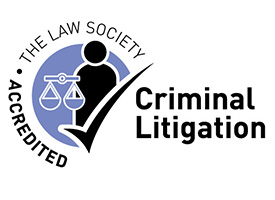We have previously posted articles about our clients who have been unfortunate enough to be charged with allegations of possession of disguised weapons that, on conviction, will attract a minimum 5 year sentence. This is often a surprise to the client, and we have had to work particularly hard to avoid an immediate prison sentence.
Examples involving disguised weapons can be found here and here.
New guidance has been issued by the prosecution as to when it is appropriate to charge the offence that attracts the minimum 5 year sentence.
It had been hoped that this change would have assisted those found in possession of a combination torch and stun gun. Unfortunately, this is not the case. The charging standards have only been relaxed where, for example, as stun gun has been disguised as another weapon.
The charging guidance now contains the following:
Note on Disguised Weapons
“Firearms which are disguised as another object (such as stun guns disguised as torches or mobile phones or other innocent objects) are prohibited weapons contrary to section 5(1)(b) and 5(1A)(a). The latter attracts a mandatory minimum sentence; the former does not.
Where a stun gun is disguised as another weapon, prosecutors should always charge section 5(1)(b) unless any significant aggravating feature, as identified by R v Avis [1988] 1 Cr App R 420 CA is present. The factors in Avis are:
• What (if any) use has been made of the firearm?
• With what intention (if any) did the defendant possess or use the firearm?
• What is the defendant’s record?
Unless a significant aggravating feature is present, the mandatory minimum sentence may be arbitrary and disproportionate. Where section 5(1)(b) is charged, the Court may still pass a significant sentence. However, it can exercise its discretion at sentence where there is an absence of aggravating features which do not merit charging an offence attracting a mandatory minimum sentence.
[Additionally] Prosecutors should note that where a stun gun is disguised as another weapon, section 5(1)(b) should be charged, absent any use or intended use of the stun gun, or the commission or alleged commission at the same time or recently of other relevant offences’”.
“…The fact that the disguised stun gun in question is of limited power is not a reason for charging the lesser offence – R v McCarthy [2013] EWCA Crim. 2500.”
Note on dual purpose objects
 Prosecutors should be alert to the defence contention that an object has a dual purpose and, therefore, is not a disguised firearm.
Prosecutors should be alert to the defence contention that an object has a dual purpose and, therefore, is not a disguised firearm.
Where a case involves a dual purpose object (for example, a combined torch and stun gun), unless it is immediately apparent that an object contains a firearm, then it is a disguised weapon and should be charged as such, (section 5(1A) Firearms Act 1968). Failure to do so would deprive the judge of all available sentencing options, including the minimum sentence.
Prosecutors should liaise with the officer in connection with a defendant’s basis of plea in all cases involving objects described as ‘dual purpose’.
The full CPS guidance in relation to firearms can be found here.
Instruct a criminal law specialist
 The charging standards make clear that there can be flexibility in whether a charge attracting a minimum sentence is brought by the prosecution. Experience of negotiating on offence and plea is an important skill that we are able to bring to your case.
The charging standards make clear that there can be flexibility in whether a charge attracting a minimum sentence is brought by the prosecution. Experience of negotiating on offence and plea is an important skill that we are able to bring to your case.
As a result it is best to take advantage of our free and independent legal advice in police interview as it is easier for us to make a difference in your case if instructed at an early stage.
You can read more about the benefits of early legal advice here.
Even in cases where you haven’t instructed us in the police station, we will still be happy to receive your instructions after interview or if the case proceeds to court.
Again, legal aid is likely to be available for your court case and we will advise you fully about all of your funding options.
You can read more about legal aid here.
We provide nationwide legal advice and representation from our offices across the East Midlands.

You can find your most convenient office here.
Alternatively you can use the contact form below:


